Through working in a developing nation, we found ourselves repeatedly running into the same challenge; finding reliable and consistent resources. While we would have the funds to purchase food & supplies, we were often searching for people to provide it reliably & consistently. In addition, we needed to find people who were willing or able to safely drive the food & supplies up the mountain. So it was there, out of the need for reliability, that we decided self-sustainability was the best path forward: use the resources we have to create systems to provide for ourselves & our community.
Our mission for sustainability has grown over the last few years, starting small with chicken coops. Our chicken coop operation started to be able to provide a consistent source of protein through chicken dinners for our children. We started with the humble goal of being able to provide chicken dinners twice a week, and through a few sharp learning curves, we navigated how to raise different types of chickens for different reasons (imagine chickens for “growing”, “eating”, and “egg producing”).
Over the last few years, with help from many of our generous friends, we have begun bigger projects including purchasing additional land to use for instructional and gardening/farming space. With a larger garden plot, we have incorporated agronomy classes into our curriculum, helping students both understand the techniques of gardening in their climate & higher elevation, as well as learning the balance of knowing how much to harvest vs replant. In addition to the larger garden plots, we have added livestock, including goats, ducks & donkeys.
The additional farming land, the stabilization of our chicken coops, and increasing the number and types of livestock have allowed us to rely less on imported food resources from other communities & cities. These simple steps towards sustainability have not only helped us balance our food budget better, it has also helped increase the safety within our community; by being able to provide some of our own staples, we rely less on having to go out and secure outside resources and risk bringing them up the mountain in unfavorable conditions.
HOOP GARDENS
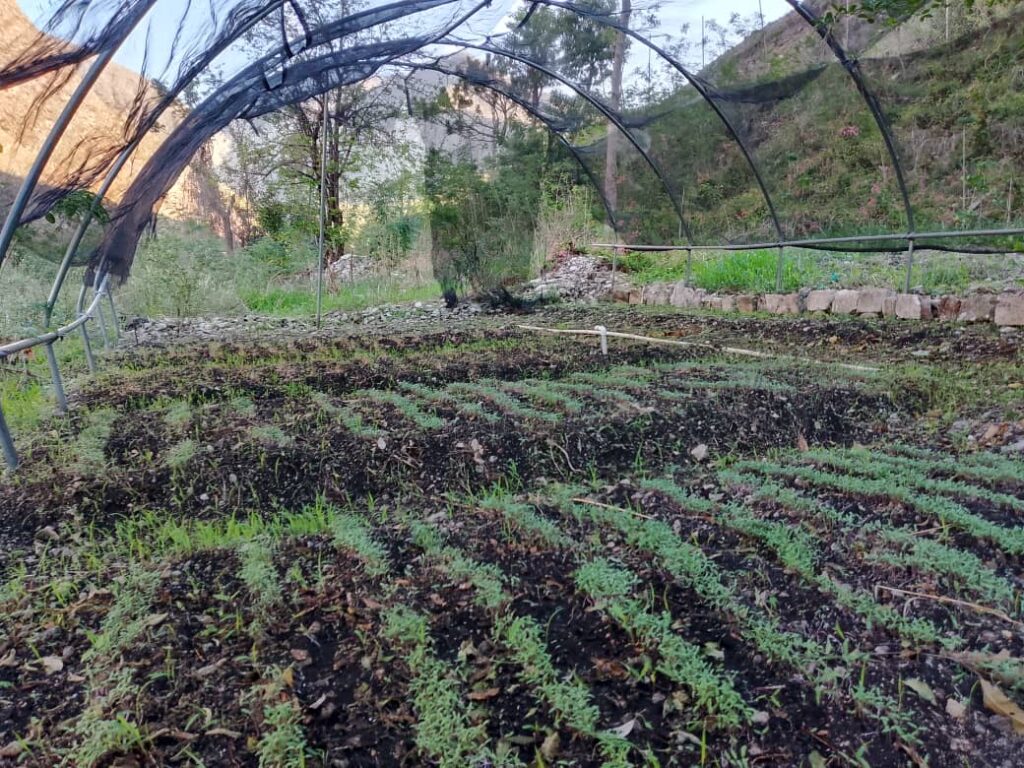
Hoop Gardens are essential for protecting our seedlings from both the harsh Haitian sun as well as predators such as birds & insects.
GARDENS
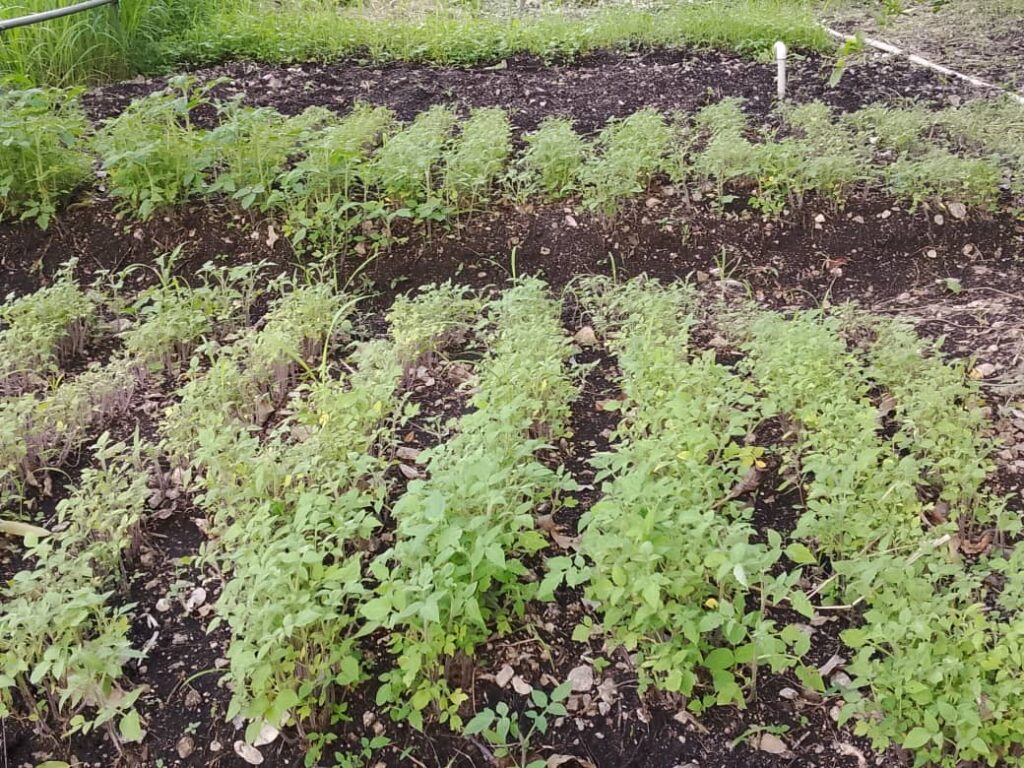
Our gardens have expanded to include items such as potatoes, avocados, peppers, onions and obviously, mangos.
AGRONOMY
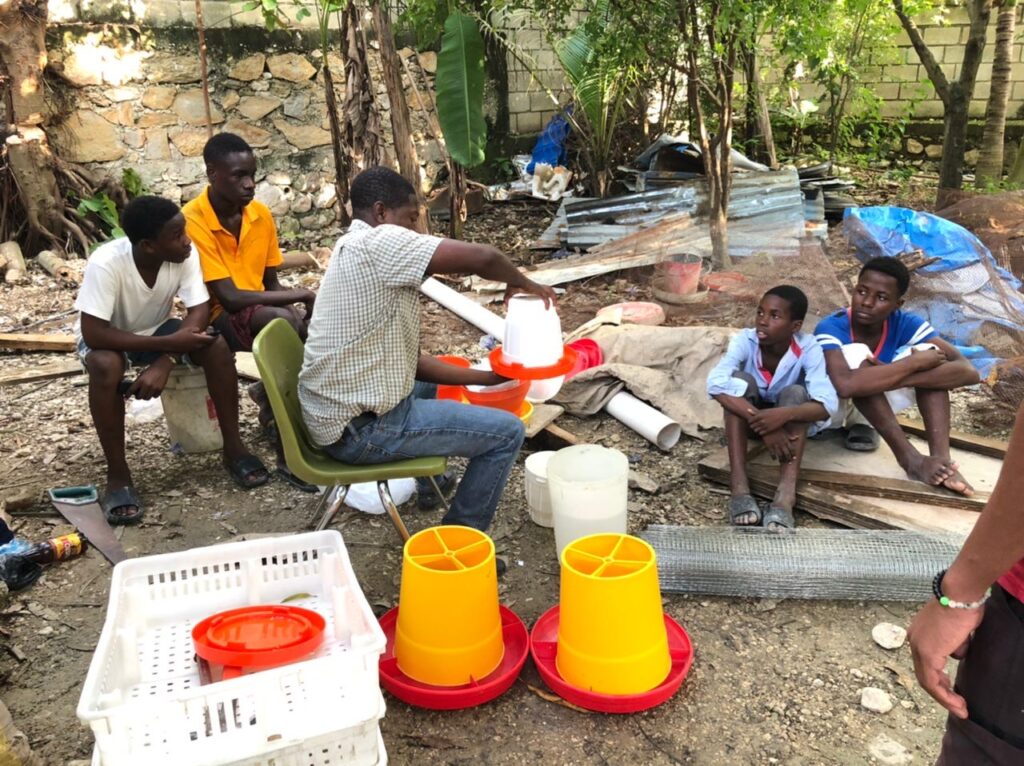
Agronomy classes have been added to our curriculum as a way to help insure our students have an understanding of best practices for gardening in their climate & elevation.
CHICKEN COOP
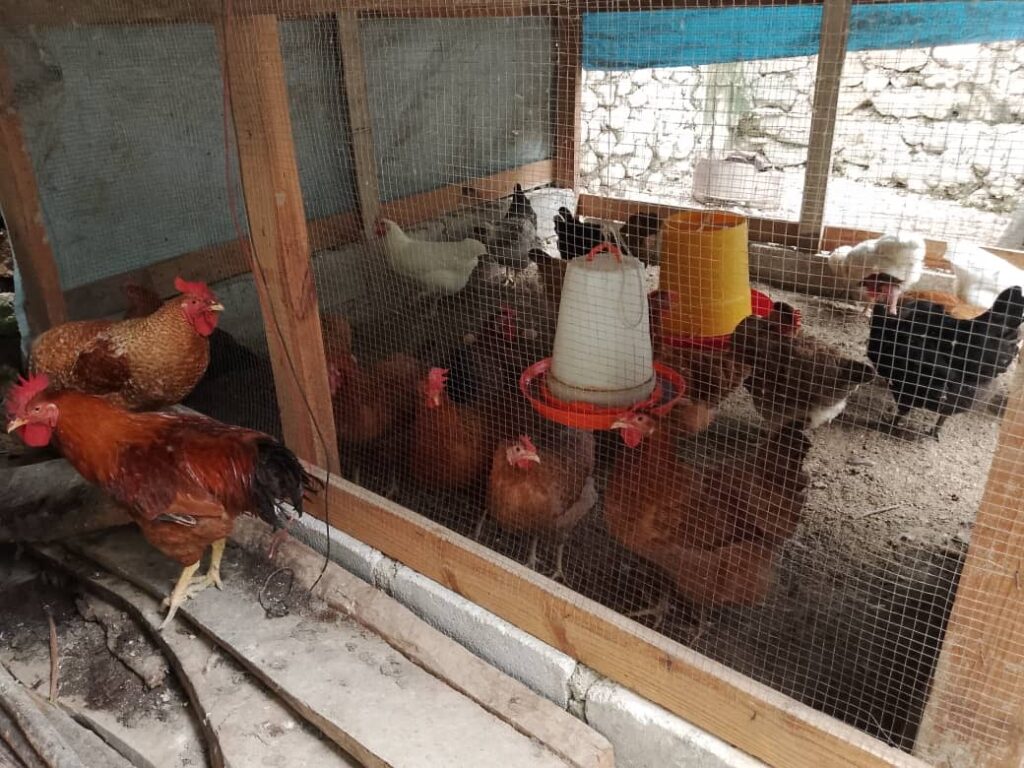
Chicken coops have been built to support all of our different “types” of chicken: our egg layers, our meat chickens & our growers.

CHICKS
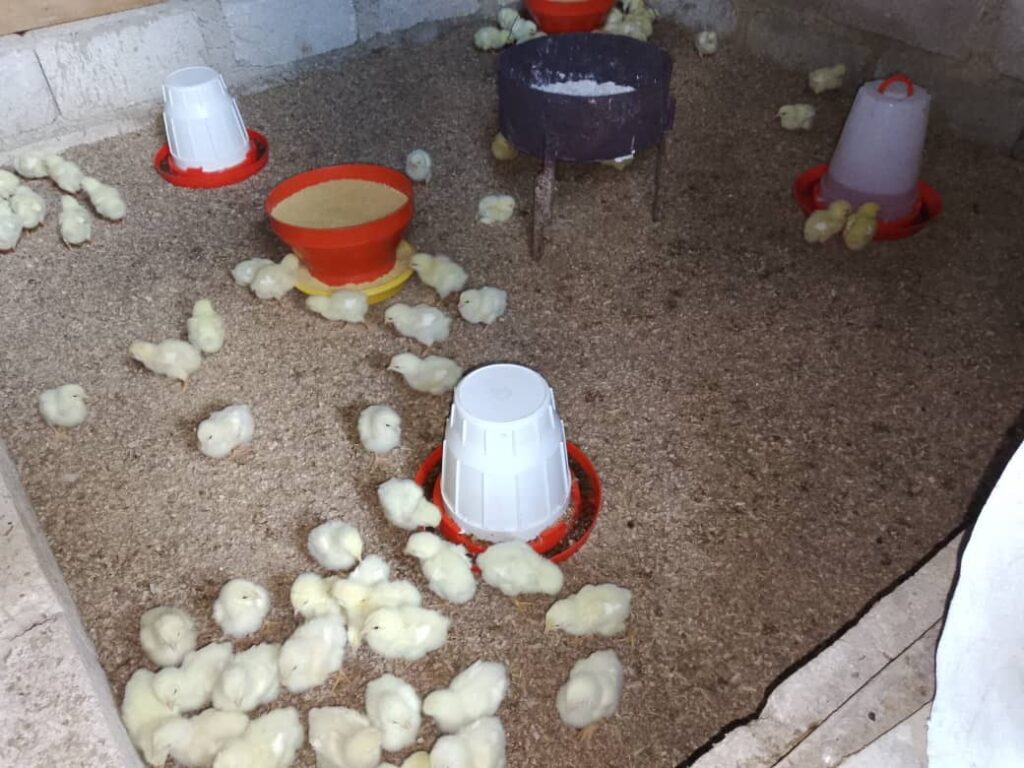
Chicks have been a fun project for our students to get “hands on” with.
